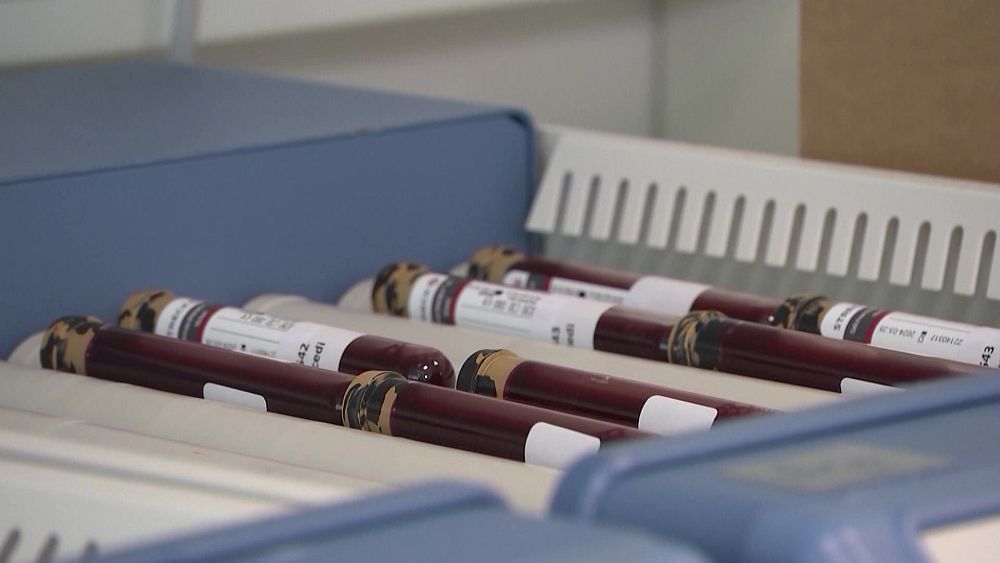
Women in Denmark can now take a blood test to identify genetic foetal abnormalities in early pregnancy. But it has raised ethical questions.
Currently, pregnant women whose foetuses are at high risk of having these abnormalities undergo chorionic villus sampling (CVS).
CVS is a placenta test that involves a needle being inserted through the mother’s stomach.
At present, the procedure is the mostaccurate test for chromosomal diseases such as Down’s Syndrome but it can be uncomfortable for the woman and carries a 0.5 per cent risk of miscarriage.
But now, researchers from Aarhus University Hospital in Denmark have succeeded in finding a new method with almost the same level of accuracy as the placenta test.
This new method, dubbed EVITA, is a type of blood test which isolates foetal cells from the pregnant woman’s blood.
Around ten foetus cells are isolated from some 200 million cells found in the woman’s blood sample. The research team says this is more than enough DNA to do a genetic analysis.
In addition to that, researchers expect that EVITA will also be able to show minor chromosomal defects.
“For now, the new blood test can reveal a number of chromosomal diseases – even more than the already existing blood test – but in the future, we will be able to find many more diseases,” Ida Vogel, Professor of foetal diagnosis at the Department of Women and Childbirth at Aarhus University, told Danish broadcaster, DR.
“In the long run, you might get the opportunity to screen for diseases that you cannot currently examine for during pregnancy, but only when the child is born. Including cystic fibrosis,” said Vogel.
She adds that it might be a reality in three to five years. Other diseases that the test could potentially identify include dwarfism and muscle wasting.
Arcedi, a private company that collaborated with hospitals in Denmark, describes EVITA as “groundbreaking”.
“We think there is huge potential in the new test. We are the first in the world to come out with the new technology,” Lotte Hatt, the scientific manager at Arcedi, told DR.
Mette Frederiksen, a Danish pregnant woman, thinks the new blood test sounds promising.
“A blood test seems like something completely normal and tangible, it doesn’t seem scary to me. The placenta test, on the other hand, sounds really unpleasant, and there is also a small risk of miscarriage. I think it would be fantastic if it became an option to get the new blood test,” said Frederiksen.
New ethical questions may arise
Foetal cells can be found in a mother’s blood sample from the 10th to the 15th week of the pregnancy. In Denmark, women have the right to an abortion up until the end of the 12th week of pregnancy.
This means parents will be able to find out whether the foetus will be born with genetic abnormalities early on in the pregnancy.
“We need to talk about the fact that only some diseases need to be examined for, and what is the real purpose of wanting to examine the foetus,” Ida Donkin, a doctor and a member of the Danish National Center for Ethics, said.
She highlights that the test can already be purchased and carried out before the limit for legal abortion.
“It is no longer a question of whether you want a child at all – then it becomes a question of whether I want this particular child,” said Donkin.
“How much is it okay to find out about the future child before the limit for free abortion”.
The Danish National Center for Ethics expects to come up with a recommendation regarding foetal diagnostics and abortion limits in the autumn.
The new blood test is not part of the public offer in Denmark yet, but the developers of EVITA hope it can be approved for that.
It’s already available at private hospitals and midwifery clinics in Denmark at a price of around €1,600.
For more on this story, watch the video in the media player above.